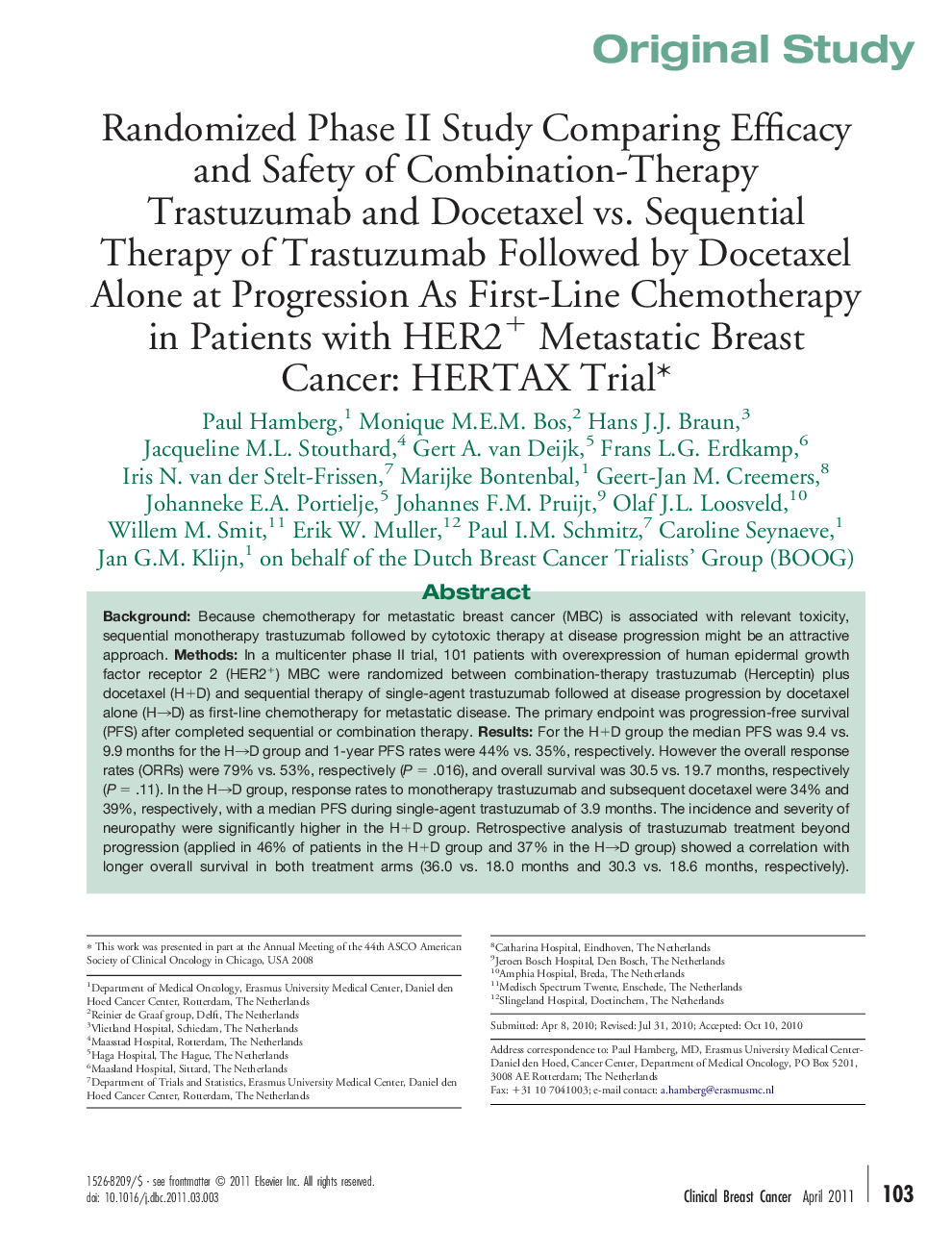| کد مقاله | کد نشریه | سال انتشار | مقاله انگلیسی | نسخه تمام متن |
|---|---|---|---|---|
| 2750784 | 1149366 | 2011 | 11 صفحه PDF | دانلود رایگان |

BackgroundBecause chemotherapy for metastatic breast cancer (MBC) is associated with relevant toxicity, sequential monotherapy trastuzumab followed by cytotoxic therapy at disease progression might be an attractive approach.MethodsIn a multicenter phase II trial, 101 patients with overexpression of human epidermal growth factor receptor 2 (HER2+) MBC were randomized between combination-therapy trastuzumab (Herceptin) plus docetaxel (H+D) and sequential therapy of single-agent trastuzumab followed at disease progression by docetaxel alone (H→D) as first-line chemotherapy for metastatic disease. The primary endpoint was progression-free survival (PFS) after completed sequential or combination therapy.ResultsFor the H+D group the median PFS was 9.4 vs. 9.9 months for the H→D group and 1-year PFS rates were 44% vs. 35%, respectively. However the overall response rates (ORRs) were 79% vs. 53%, respectively (P = .016), and overall survival was 30.5 vs. 19.7 months, respectively (P = .11). In the H→D group, response rates to monotherapy trastuzumab and subsequent docetaxel were 34% and 39%, respectively, with a median PFS during single-agent trastuzumab of 3.9 months. The incidence and severity of neuropathy were significantly higher in the H+D group. Retrospective analysis of trastuzumab treatment beyond progression (applied in 46% of patients in the H+D group and 37% in the H→D group) showed a correlation with longer overall survival in both treatment arms (36.0 vs. 18.0 months and 30.3 vs. 18.6 months, respectively).ConclusionFirst-line treatment in patients with MBC with H→D resulted in a similar PFS compared with H+D, but the response rate was lower and the overall survival nonsignificantly shorter.
Journal: Clinical Breast Cancer - Volume 11, Issue 2, April 2011, Pages 103–113